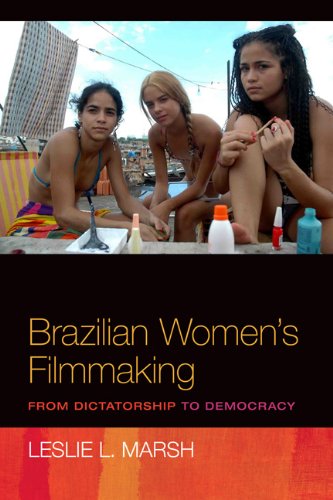

Most ebook files are in PDF format, so you can easily read them using various software such as Foxit Reader or directly on the Google Chrome browser.
Some ebook files are released by publishers in other formats such as .awz, .mobi, .epub, .fb2, etc. You may need to install specific software to read these formats on mobile/PC, such as Calibre.
Please read the tutorial at this link. https://ebooknice.com/page/post?id=faq
We offer FREE conversion to the popular formats you request; however, this may take some time. Therefore, right after payment, please email us, and we will try to provide the service as quickly as possible.
For some exceptional file formats or broken links (if any), please refrain from opening any disputes. Instead, email us first, and we will try to assist within a maximum of 6 hours.
EbookNice Team

Status:
Available0.0
0 reviewsAt most recent count, there are no fewer than forty-five women in Brazil directing or codirecting feature-length fiction or documentary films. In the early 1990s, women filmmakers in Brazil were credited for being at the forefront of the rebirth of filmmaking, or retomada, after the abolition of the state film agency and subsequent standstill of film production. Despite their numbers and success, films by Brazilian women directors are generally absent from discussions of Latin American film and published scholarly works. Filling this void, Brazilian Women's Filmmaking focuses on women's film production in Brazil from the mid-1970s to the current era. Leslie L. Marsh explains how women's filmmaking contributed to the reformulation of sexual, cultural, and political citizenship during Brazil's fight for the return and expansion of civil rights during the 1970s and 1980s and the recent questioning of the quality of democracy in the 1990s and 2000s. She interprets key films by Ana Carolina and Tizuka Yamasaki, documentaries with social themes, and independent videos supported by archival research and extensive interviews with Brazilian women filmmakers. Despite changes in production contexts, recent Brazilian women's films have furthered feminist debates regarding citizenship while raising concerns about the quality of the emergent democracy. Brazilian Women's Filmmaking offers a unique view of how women's audiovisual production has intersected with the reconfigurations of gender and female sexuality put forth by the women's movements in Brazil and continuing demands for greater social, cultural, and political inclusion.